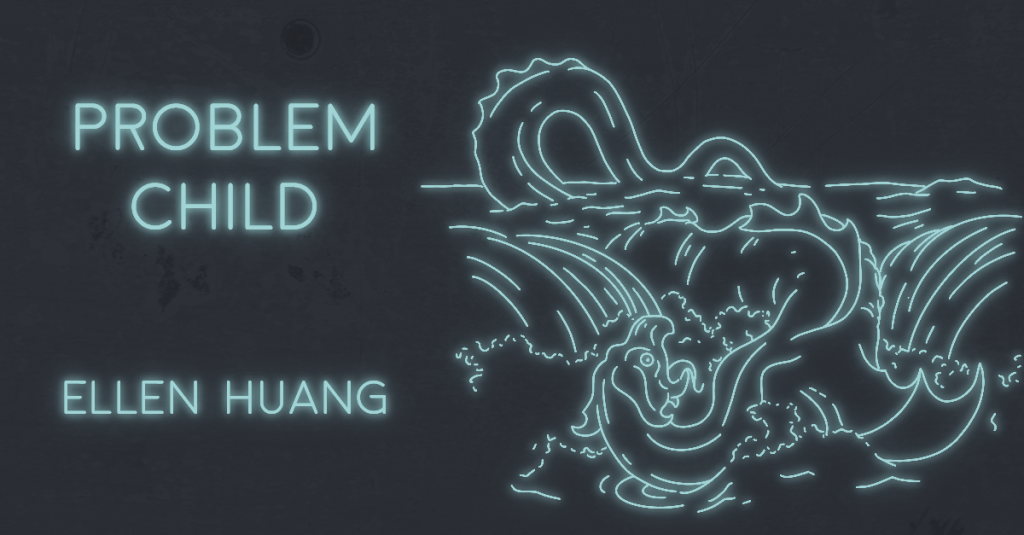Ariel often got in trouble for trying to escape. That was how he saw it, anyway. He spent much of his time enigmatically testing the limits of his body, such as a current frustrating inability to become liquid. “If cats can do it, why can’t I?” he’d grumble. He’d try to vanish into the air but trip over balls of yarn left around the house. He was losing the skill of leaving his body. He was losing memory of transcendent experience fast.
They considered him distracted. His eyes were often elsewhere, in a different time and place, some good old days no one here would understand. Coma, lucid dreaming, and Peter Pan Syndrome were offensive nonsense words to him. He’d stew in the shadows at the staircase, grumbling at this illusion of these mere mortal adults being his senior.
Sometimes, he’d spin around fervently, in delusional attempts to become a tornado, feet flying. Then he’d get scolded as if he had spun the entire room around him. No one cared that it was the small bed that spiraled into his way first. All that mattered was he had knocked into it, making little Fey cry again.
He didn’t know why Fey made such a racket. She wasn’t a baby. In fact, she was rather a bit of a prodigy as far as creatives went. At only four, she was making pretty little cats out of fabric, quite possibly on the verge of giving them life in the future.
Ariel also got in trouble for telling Fey what the wind said on stormy nights. He told of how he had been a force of nature in a previous life, and thus once able to become the wind. Now, he could only interpret what ghosts on the breeze were saying, and embellish as he saw fit.
If he was feeling especially irritated about serving his sentence in this mortal shell, he would tell Fey the howling wind was saying very gruesome things. Four-year-old Fey had to hear that the wind was saying it’d rip out her hair and grind her teeth into bread for elementals in the afterlife. Or that the wind was getting angrier for missing one if its favorite gods (as Ariel often bragged he was), and the wind was going to vengefully destroy the villages while dumping Fey in a giant mixing bowl.
One night, Fey accidentally stepped on his cloak and choked him. Ariel wasn’t used to such things as he expected to poof into air if anything got him. The wind was mild that night but angry Ariel was still able to scare the girl by saying: “The wind is saying it’ll wait until you sleep first. Then it’s going to wrap you up and throw you far away, to get caught on a telephone pole. And then the telephone pole will unravel your innards. And then, when it’s had its fun, the wind will empty out your head like a melon.”
“Noooo!” cried Fey, holding the button-eyed patchwork cat she had.
But then Ariel jolted when he actually did hear the wind speaking.
It was howling louder outside, but nothing in the house seemed to be disturbed. Ariel’s eyes felt like they were going to pop out, but now that he was a mortal they remained secure.
“Ariel,” boomed a voice in the wind. “Why are you tormenting your sister?”
“She’s not my sister!” Ariel huffed, hands over his ears. “I’m not meant to be a babysitter. When will you let me go?”
“Ariel, you fell out of your own accord. Do not blame the child.”
Ariel groaned. “I am a DRAGON. I am an ELEMENT. I am the SLEEPING GIANT BENEATH THE SEAS. And in this life, if you insist…I am a BOY. I don’t settle for tea parties with lost girls!”
Then the wind got into his head, where he could not escape. “You are still made by something and will fall by something. Take the chance to become something more than a fool.”
Suddenly, Ariel began to tremble. The wind had never gotten into his head before, commanding silence in the unsettled storm in his head. A whirlwind of suppressed thoughts, perhaps hundreds of years old, suddenly ceased. There was only the voice, a whisper in a closed, empty room. “Don’t bother Fey again.”
So for the rest of that night, Ariel did whatever Fey asked. He baked the cookies, set up the tea parties, flattered her eleventh thrown-together-and-not-yet-live cats. He let her try his black cape and he resisted all urge to tighten it until she squeaked, for fear the wind’s voice would shut off all sweet room tone, all white noise, all other dreams. He gritted his teeth and held himself together while Fey drew on his face and braided his short flame of hair. He resisted all desire to burst the tiara into flames. It was surprisingly easy.
He caught a glint in the little girl’s bright green eyes, a concentration of power the neighbors feared. People around here had fearful tales about black girls with green eyes, as if she were some possessed gris-gris doll and not a little girl at all. Yet the voice told him such tales only planted forces of hatred in this world. The voice told him within her was the tested, resilient, blinding power of good, that many would not understand. They would be responsible for not provoking each other. This practice of shaping life in the moment and being slow to anger, this gradual cultivating like waiting for yeast to rise in the blip of mortal life—that was where the wind was present. Ariel was going to have to understand that. He had never noticed Fey’s irises, gleaming with other lives, too. He let goosebumps crawl on his bare white arms for the first time in ages.
“Your Papa sure loves you, I’ll give you that,” he muttered as the girl finally went to sleep with a smile on her face.

